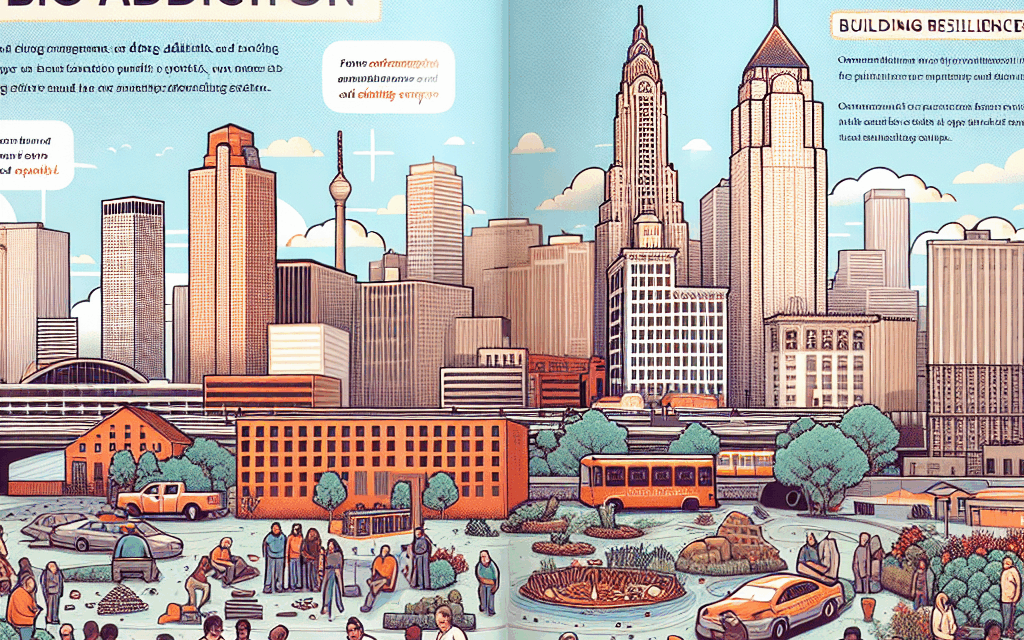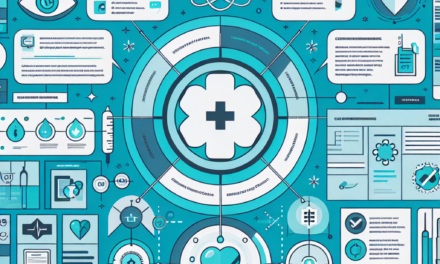Overcoming Addiction: A Guide to Drug Rehab in NYC with Resilience and Community
Addiction is a complex and multifaceted issue that affects millions of individuals and families across the globe. In New York City, a vibrant metropolis with a diverse population, the struggle with substance abuse is particularly pronounced. However, the city also offers a wealth of resources and support systems for those seeking to overcome addiction. This article serves as a comprehensive guide to drug rehabilitation in NYC, focusing on the importance of resilience and community in the recovery process.
Understanding Addiction: The First Step Towards Recovery
Before delving into the specifics of drug rehab in NYC, it is crucial to understand what addiction is and how it manifests. Addiction is often characterized by compulsive drug-seeking behavior, despite harmful consequences. It is a chronic disease that affects the brain’s structure and function, leading to changes in behavior, mood, and cognition.
According to the National Institute on Drug Abuse (NIDA), approximately 21 million Americans have at least one addiction, yet only 10% of them receive treatment. This statistic highlights the stigma and barriers that many face when seeking help. In NYC, the landscape of addiction is shaped by various factors, including socioeconomic status, mental health issues, and the availability of drugs.
Understanding the underlying causes of addiction is essential for effective treatment. Factors contributing to addiction may include:
- Genetics: Family history can play a significant role in an individual’s susceptibility to addiction.
- Environmental Influences: Exposure to drugs, peer pressure, and socio-economic conditions can increase the risk of developing an addiction.
- Mental Health Disorders: Conditions such as depression, anxiety, and PTSD often co-occur with substance abuse.
- Trauma: Experiencing traumatic events can lead individuals to seek solace in drugs or alcohol.
Recognizing these factors can empower individuals to seek appropriate treatment and support. The journey to recovery begins with acknowledging the problem and understanding that help is available.
The Landscape of Drug Rehabilitation in NYC
New York City is home to a wide array of drug rehabilitation programs, each offering unique approaches to treatment. These programs can be broadly categorized into inpatient and outpatient services, each with its own set of advantages and challenges.
Inpatient Rehabilitation Programs
Inpatient rehab programs require individuals to reside at the treatment facility for a specified period, typically ranging from 30 to 90 days. This immersive approach allows for intensive therapy and support, free from the distractions and triggers of daily life.
Some key features of inpatient rehab programs include:
- 24/7 Medical Supervision: Inpatient facilities provide round-the-clock care, which is particularly important for individuals undergoing detoxification.
- Structured Environment: The controlled setting minimizes exposure to drugs and alcohol, allowing individuals to focus solely on their recovery.
- Comprehensive Treatment: Inpatient programs often include a combination of individual therapy, group therapy, and holistic approaches such as yoga and meditation.
Examples of reputable inpatient rehab centers in NYC include the Mount Sinai Behavioral Health Center and New York-Presbyterian Hospital, both of which offer evidence-based treatment options tailored to individual needs.
Outpatient Rehabilitation Programs
Outpatient rehab programs allow individuals to receive treatment while maintaining their daily responsibilities, such as work or family obligations. These programs vary in intensity, with some requiring several hours of therapy each week, while others may involve less frequent visits.
Benefits of outpatient rehab include:
- Flexibility: Individuals can continue their daily routines while attending therapy sessions.
- Cost-Effectiveness: Outpatient programs are often less expensive than inpatient options.
- Community Support: Participants can engage with their support networks outside of the treatment facility.
Notable outpatient programs in NYC include SMART Recovery and Alcoholics Anonymous (AA), both of which emphasize peer support and community involvement in the recovery process.
The Role of Resilience in Recovery
Resilience is the ability to bounce back from adversity, and it plays a crucial role in the recovery process. Building resilience can help individuals navigate the challenges of addiction and maintain long-term sobriety. Here are some strategies for fostering resilience during recovery:
Developing Coping Skills
Effective coping skills are essential for managing stress and avoiding relapse. Individuals in recovery can benefit from learning various coping strategies, such as:
- Mindfulness and Meditation: Practicing mindfulness can help individuals stay present and reduce anxiety.
- Journaling: Writing about thoughts and feelings can provide clarity and emotional release.
- Physical Activity: Regular exercise has been shown to improve mood and reduce cravings.
Incorporating these coping skills into daily life can enhance resilience and provide individuals with the tools they need to face challenges head-on.
Building a Support Network
A strong support network is vital for recovery. Surrounding oneself with positive influences can foster resilience and provide encouragement during difficult times. Strategies for building a support network include:
- Engaging in Support Groups: Participating in groups like AA or Narcotics Anonymous (NA) can connect individuals with others who understand their struggles.
- Seeking Professional Help: Therapists and counselors can provide guidance and support tailored to individual needs.
- Involving Family and Friends: Open communication with loved ones can strengthen relationships and create a sense of accountability.
By actively seeking support, individuals can cultivate resilience and create a safety net that encourages sobriety.
The Importance of Community in Recovery
Community plays a pivotal role in the recovery process. Engaging with others who share similar experiences can foster a sense of belonging and reduce feelings of isolation. In NYC, numerous community resources are available to support individuals in recovery.
Peer Support Programs
Peer support programs connect individuals in recovery with those who have successfully navigated similar challenges. These programs can take various forms, including:
- Mentorship Programs: Pairing individuals with mentors who have maintained sobriety can provide guidance and inspiration.
- Support Groups: Regular meetings allow individuals to share experiences, challenges, and successes in a safe environment.
- Community Events: Participating in sober events fosters social connections and reinforces commitment to recovery.
Organizations like Young People in Recovery and Faces & Voices of Recovery offer peer support programs specifically designed for young adults and marginalized communities, emphasizing the importance of community in the recovery journey.
Accessing Resources and Services
NYC offers a wealth of resources for individuals seeking recovery. These include:
- Hotlines: The NYC Department of Health provides a 24/7 hotline for individuals seeking help with substance abuse.
- Community Health Centers: Facilities like Community Healthcare Network offer comprehensive services, including mental health support and addiction treatment.
- Nonprofit Organizations: Organizations such as Project Renewal and New York Harm Reduction Educators provide various services, including housing assistance and harm reduction strategies.
By leveraging these resources, individuals can access the support they need to navigate their recovery journey successfully.
Success Stories: Inspiring Examples of Recovery
Real-life success stories can serve as powerful motivators for those struggling with addiction. Here are a few inspiring examples of individuals who have overcome addiction in NYC:
Case Study 1: John’s Journey
John, a 32-year-old former construction worker, struggled with opioid addiction for over five years. After multiple failed attempts at recovery, he found a supportive community through a local AA group. With the help of a mentor, John learned coping strategies and developed a strong support network. Today, he is sober for over two years and works as a peer counselor, helping others navigate their recovery journeys.
Case Study 2: Maria’s Transformation
Maria, a 28-year-old artist, battled alcohol addiction for nearly a decade. After hitting rock bottom, she sought help at an inpatient rehab facility in NYC. Through therapy and art-based recovery programs, Maria discovered new ways to express herself and cope with her emotions. Now, she uses her art to raise awareness about addiction and inspire others to seek help.
These stories illustrate the power of resilience and community in overcoming addiction. They remind us that recovery is possible and that support is available.
Conclusion: Embracing the Journey of Recovery
Overcoming addiction is a challenging yet rewarding journey that requires resilience, community support, and access to effective resources. In NYC, individuals have a wealth of options for drug rehabilitation, from inpatient and outpatient programs to peer support networks and community resources.
By understanding the nature of addiction, developing coping skills, building a support network, and engaging with the community, individuals can cultivate the resilience needed to navigate the complexities of recovery. The stories of those who have successfully overcome addiction serve as powerful reminders that recovery is not only possible but also a transformative experience.
If you or someone you know is struggling with addiction, remember that help is available. Reach out to local resources, connect with support groups, and take the first step towards a healthier, sober life. Together, we can overcome addiction and build a brighter future.





